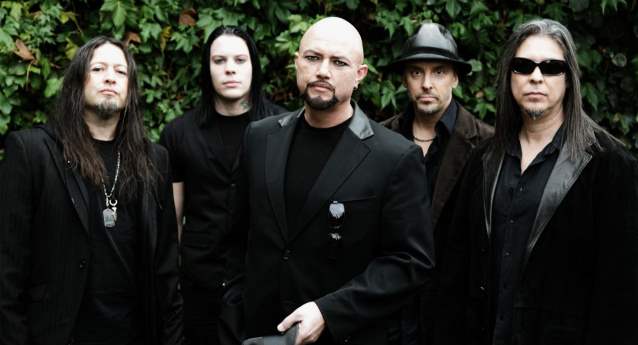In a recent interview with the Allentown Music Examiner, QUEENSRYCHE guitarist Michael ilton was asked when fans can expect a resolution of the legal case involving the two versions of QUEENSRŸCHE. “That’s coming up,” Wilton said. “What I can say is that both sides have reached an amicable settlement and it’s now just a matter of time. There will be an official press release, but for now, you’ll have to wait.”
Wilton also revealed that the Todd La Torre-fronted version of QUEENSRŸCHE is continuing work on material for the follow-up to last year’s self-titled effort. “We’ve already begun the process for the next album,” he said. “We have probably six songs demoed so far. We’re taking it in a direction suited to what we do as QUEENSRŸCHE but maybe a little more progressive and heavier. The thing is, you never know what you really have until it’s complete. It’s like carving a piece of clay and seeing how it turns out. You peel off the layers until you get to something really cool.”
Geoff Tate and his wife, Susan, QUEENSRŸCHE’s former manager, filed a lawsuit in June 2012 asking the judge to award them the rights to the band’s name in exchange for Tate paying Eddie Jackson (bass), Michael Wilton (guitar) and Scott Rockenfield (drums) the fair market value for their interests in the QUEENSRŸCHE companies. Wilton, Rockenfield and Jackson filed a countersuit against the Tates in which they accused Geoff of creative obstruction and violent behavior, and Susan Tate of questionable business practices.
While ruling against Tate, the presiding judge determined that there was no legal hurdle in Tate also using the name with an all-new lineup of musicians. “I don’t see any reason that Mr. Tate can’t have the benefit, if he gets other members, of whatever name he uses of using the brand,” Superior Court Judge Carol A. Schapira said during the July 13, 2012 court hearing. “I think [doing that would be] inherently confusing, although I’m sure the market can get these things sorted out,” she added.


